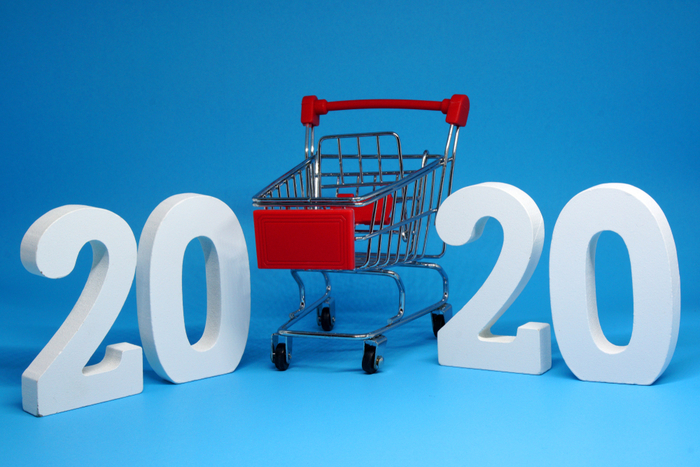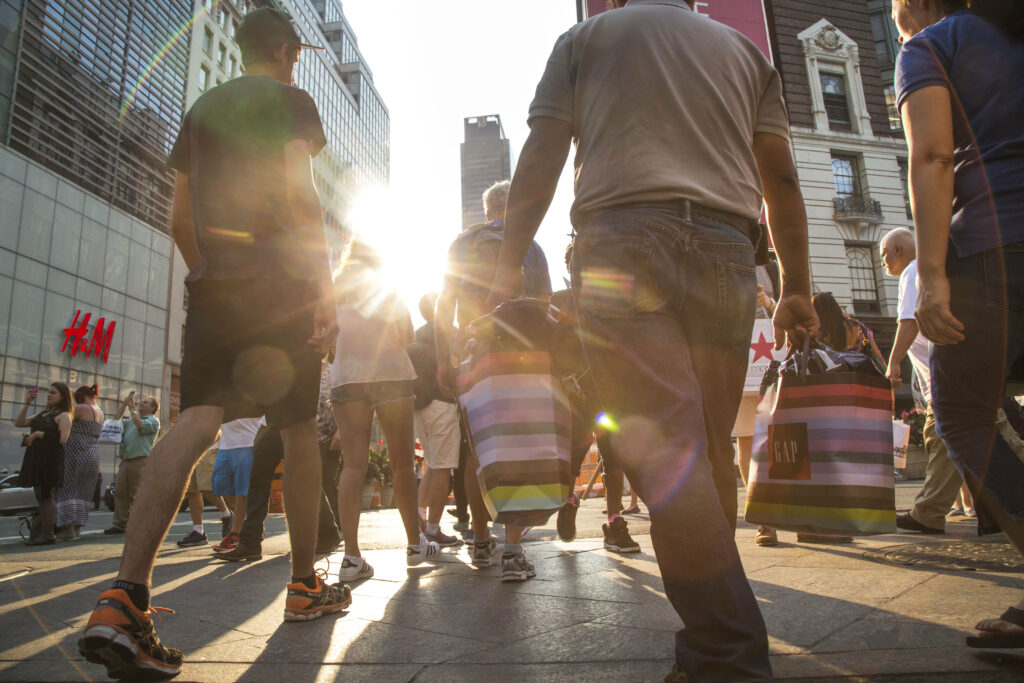Last year was a challenging, if not strenuous time for the UK retail industry.
In fact, according to two separate reports from the Retail Sales Monitor and the Retail Think Tank, 2019 was the worst year on record when it came to the overall health of Britain’s retail sector.
Not only did it present some of the toughest trading conditions in modern history – resulting in over 140,000 job losses – the catastrophe may continue into 2020. 8000 stores closed in 2019, with retail experts predicting this to continue at the same pace.
Despite this, there is still a glimmer of hope that things will improve – even if it’s not overnight. And with that, trends that have been gathering pace in recent years may explode this year, alongside whole new trends or concepts that are bound to catch everyone’s attention.
The Retail Gazette spoke to industry experts to find out what UK retail can expect this year.
SUSTAINABILITY
Last year saw seven out of 10 grocers reduce their plastic packaging, as well as make pledges to reduce their carbon footprint.
Alex Rohloff, co-founder of payment system Laybuy, told Retail Gazette that sustainability “will no doubt continue into 2020”.
He suggested that the retail sector is likely to see strong transitions to environmentally friendly and decomposable products in the next year. Although this movement has been seen before, he said the introduction of single use plastic bags was really just “the tip of the iceberg”.
Earlier this month, Debenhams unveiled its new sustainability programme to highlight new benchmarks for UK department store retailing in the 2020s. Its new commitments include sustainably sourcing 100 per cent of its cotton by 2022, and all own-brand products sold in store will have at least one sustainable attribute by September 2020.
Oliver Guy, industry director at Software AG, said environmental responsibility would become a differentiator for retailers this year. He also said the increased focus on the environment will allow retailers to access consumer choices seamlessly, helping them respond accordingly.

Food waste concerns are also expected to continue dominating retailers’ agendas in 2020. AI-enabled platform Symphony RetailAI predicted that consumers will become more eco-conscious, thus placing increased pressure on retailers to forecast their food wastage as accurately as possible.
Symphony RetailAI added that retailers would likely invest in understanding consumer behaviour and events that affect demand – from traditional factors such as the weather or payday to more emerging indicators like basket size or purchase behaviours.
TECH
Technology has already transformed the retail industry beyond recognition. These days, almost every consumer is an online customer.
The shift from in-store exclusivity to omnichannel spending has pushed retailers to make huge adjustments in the way that they do business – and those who failed to adapt have been left behind.
This has encouraged further tech innovation – such as Adidas’ London flagship which brought in virtual mirrors late last year, and Sainsbury’s launching the UK’s first till-free store.
Symphony RetailAI predicted that retailers will increasingly rely on technology to advertise their brand. Although this has been done before, the firm said “retailers will look to tech to ensure that the right customer is targeted at the right time and place”.
James Harvey, chief tech officer at Cisco AppDynamics, told Retail Gazette that retailers will likely focus more on the digital customer experience rather than the in-store or face-to-face experience “for the first time ever”.
Meanwhile Angus Burrell, UK general manager of payments solutions company Valitor, argued that social media will come more into play.

“The reason that social commerce will continue to be such a powerful force is because it serves one of consumers’ most pressing needs; convenience,” he said.
“Social networks will continue to make the path to purchase shorter and less complicated, allowing consumers to make a quick purchase with minimal effort.”
EXPERIENTIAL RETAIL
While technology has undoubtedly changed the way we shop, the purpose of the bricks-and-mortar retail store has also changed.
Last year saw stablemates John Lewis and Waitrose launch a customer experience-centric concept in Southampton as part of a trial, while Adidas’ 27,000sq ft London flagship introduced interactive changing room mirrors and a printing machine for customising products in store.
The Body Shop offered experiential retail with a blend of relevance – it revamped its London Bond Street store into a concept store by offering a dedicated activism corner, refill station and product zones – where customers can learn more about its sustainability initiatives.
The parent company of Westfield, Unibail-Rodamco-Westfield, recently released its How We Shop report – which discussed the “biggest retail trends to date” and predicted that over half of retail space in stores will be dedicated to experiences.
“In the next year, the penny will drop, and the role of the store will change: it’ll become a place for consumers to have more of an experience,” said Raphaël De Perlinghi, business director at online retailer Targus.
Burrell added: “The high street will continue to redefine itself, becoming a destination for experiences, not just product purchases.”
While the competition from online retail is not to be underestimated, 2020 will see retail continue to play to its strengths, according to Symphony RetailAI. The firm added that the retail sector will see more live music, cooking classes, and other services transform store visits into “experiences to be enjoyed and sustained”.

Raj Badarinath, vice president of marketing at RichRelevance, predicted that “more retailers will wake up to the realisation that key growth pockets come from competing on experiences, not on matching frictionless offerings like Amazon or Alibaba”.
He added that personalisation will also have an increased role, as retailers seek to offer a “compelling shopping experience that will grant a competitive edge”.
“Consumers will refuse to engage with any platform that does not offer a harmonised, accurate reflection of themselves,” Badarinath said.
CUSTOMER LOYALTY
There’s increasing evidence to suggest that consumers will flick between loyalty schemes depending on what’s on offer at any given time. Due to this increasing competition, 2019, saw major retailers put forward initiatives to boost loyalty.
Morrisons teamed up with market research company IRI to offer personalised rewards, while fellow Big 4 grocer Tesco revealed Clubcard Plus would offer further savings.
Discounting is one initiative that retailers undertake when trying to attract customers, and many of them capitalise on sales events such as Black Friday – although this hasn’t always worked in favour.
The ONS found in December that retail sales grew at their weakest annual rate since October 2017 despite steep discounting on the high street. Black Friday discounting failed to attract shoppers, as sales fell 0.6 per cent during November – making it the fourth monthly decline in a row.
“Those participating not only suffer from reduced margins due to the sales volume, but also due to the fact that they’re effectively pulling their Christmas sales forwards in the process,” Rohloff explained.
“Retailers don’t especially enjoy these periods. But by choosing not to participate, they’re basically conceding to their competitors who are offering customers sweeter deals.”
He suggested that 2020 will see retailers introduce diverse payment options to cater for a wider range of spending habits, to help “create greater loyalty in the process”.
Daniel Bailey, vice president at customer service firm Zendesk, told Retail Gazette that 2020 will see “more investment and focus placed on customer service as the ‘front line’” to help boost customer loyalty and satisfaction.

“More companies will recognise the importance of customer experience to help them differentiate in an increasingly competitive market,” he said.
An example of this took place less than two weeks into 2020, when Dixons Carphone said it would begin outsourcing its call centres as part of a new initiative to help increase its customer satisfaction score.
OVERVIEW
It’s no secret that the retail landscape is in the midst of a dramatic shift. Consumers’ needs are constantly changing, high street continues to be hit by the full force of online behemoths and this doesn’t look to be coming to a halt anytime soon.
Gone are the easy days to win customer loyalty. Consumers feel no shame in looking to a competitor if a brand cannot offer them the right experience at the right price. Social media has helped to fuel this mentality, with the likes of Instagram allowing consumers to jump from retailer to retailer, with direct-to-consumer brands sells directly to their customers.
The retailers that triumph in the midst of this are those that not only offer products, but an entire culture and ethos for their audience to buy into.
What’s pivotal for retailers is to ensure that they aren’t just innovating or digitising for the sake of it, but truly understanding the problem that they are trying to solve, and the way they go about meeting the needs and desires of their customers.
Click here to sign up to Retail Gazette’s free daily email newsletter

















